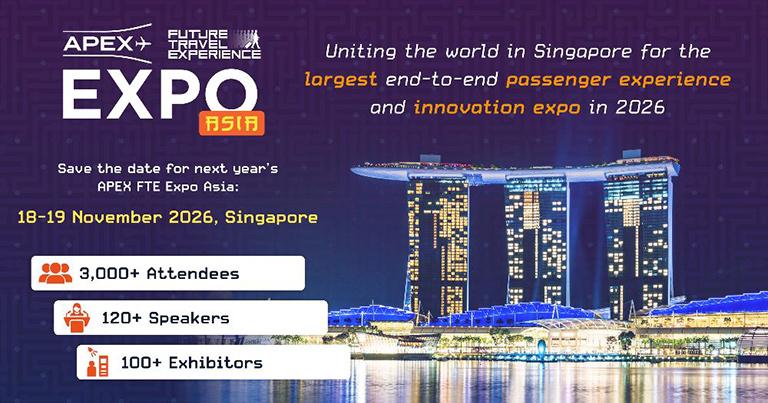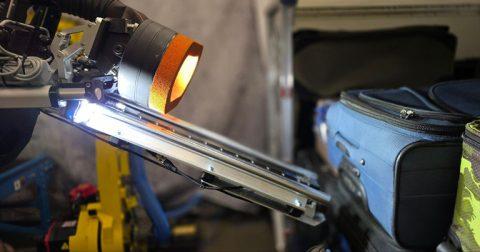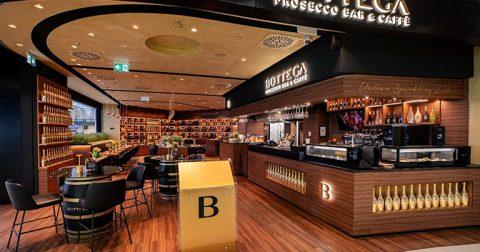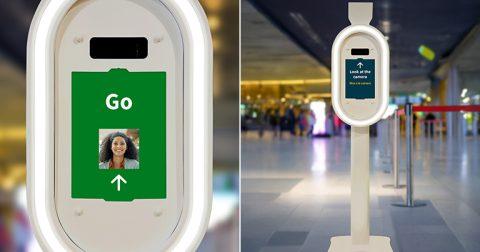Fiji Airways’ strategic evolution in customer experience, cultural expression and service consistency has seen it recently advance to APEX World Class status, recognising the airline among the world’s top 10. In this video interview, following his participation at the recent APEX FTE Asia Expo, Akuila Batiweti, Chief Customer Officer, shares how Fiji Airways is innovating to enhance end-to-end CX; how the airline creates truly unique, memorable and differentiated experiences for all types of guests; the importance of ensuring that experiences remain consistent across digital and in-person channels, and much more.
Preserving the human touch in an automated world
Airlines worldwide are racing to automate processes, adopt artificial intelligence (AI), and streamline operations. But for Fiji Airways, technology is not the destination – it is an enabler. In ‘The End-to-End Customer Experience Summit’ at APEX FTE Asia Expo 2025, Batiweti highlighted that the airline’s strategy deliberately prioritises human interaction, particularly between cabin crew and guests.
“One of the key messages I shared was how we don’t let technology overrun the human touch,” he said. “While we love to automate and become more digitally enabled, the best interactions we have with our guests come from our fantastic cabin crew.”
This philosophy reflects a broader trend across the industry: as digital solutions reduce friction and personalise journeys, passengers increasingly value meaningful, authentic engagement. Fiji Airways is doubling down on that differentiator.
Culture as a differentiator
For Batiweti, creating unique and memorable experiences isn’t about programs or gimmicks – it’s about authenticity. With Fiji’s cultural heritage deeply rooted in warmth, hospitality, and joy, the airline sees itself as an ambassador of the nation’s spirit.
“We’re in a unique position as a small island nation,” he explained. “For us, it’s sharing our culture, our authenticity as a people, and our happiness. It’s easy for us to create and share that with our guests.”
This approach allows Fiji Airways to deliver a passenger experience that feels personal and distinct – something that can’t be replicated simply by adding new digital layers. Instead, culture becomes the foundation upon which technology supports, rather than replaces, the human element.
The ‘three-minute’ strategy: time as the ultimate luxury
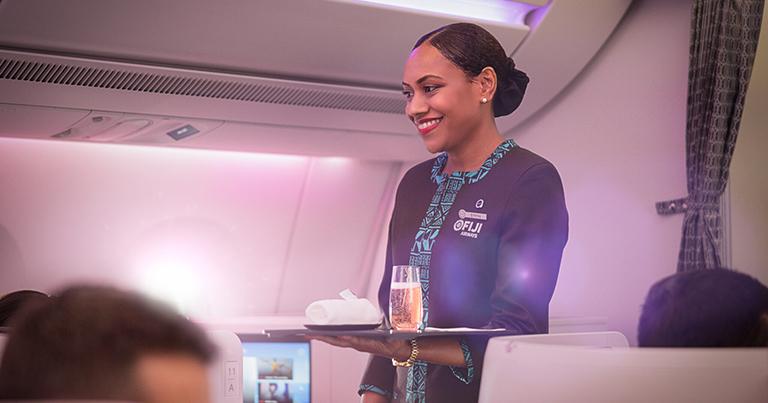
One of Fiji Airways’ current focal points is deceptively simple: giving cabin crew more time. Batiweti refers to this as the “three-minute piece” – a strategic effort to free up at least three additional minutes per flight for staff to engage with passengers.
“How do I automate? How do I create efficiencies that buy our cabin crew just a little more time?” he asked. “The impact of just a bit more conversation goes a very long way.”
This philosophy underscores a tension many airlines are grappling with: as technology streamlines operational tasks, the value lies in redirecting the saved minutes toward high-impact, human interactions. Whether through automated meal ordering, faster boarding processes, or simplified inflight workflows, Fiji Airways’ aim is consistent – more time for crew to connect, listen, and deliver thoughtful service.
Untapped potential in the post-trip experience
When asked which stage of the travel journey holds the most promise for innovation, Batiweti pointed to a phase often overlooked by airlines: post-trip engagement.
“Technology companies and airlines have done a lot on the pre-trip experience and in getting guests to book,” he noted. “I think the untapped potential is what happens after – to get them back, to build on memorable experiences. That’s the future.”
This reflects a broader shift in the customer experience landscape. While digital channels and AI continue to optimise booking and pre-departure, airlines are now exploring how to extend the relationship after landing – through personalised follow-up, loyalty engagement, relevant offers, and seamless rebooking journeys. As the cost of acquisition rises and competition intensifies, post-trip engagement represents fertile ground for differentiation.
Technology as a time-creator – not a substitute
Across the interview, Batiweti repeatedly returned to a central theme: technology’s role is to create time for people to be more human. Whether through automation, AI-enabled processes, or digitised workflows, Fiji Airways views tech as a tool to unlock efficiencies that directly enhance service quality. “If meal orders can be automated, or if we can speed up boarding, that gives the crew more time to do the interactions we want them to do,” he said.
This perspective aligns with one of the key debates across the FTE ecosystem: how to deploy automation without creating sterile, overly robotic travel experiences. Fiji Airways’ approach demonstrates that automation and empathy are not opposites – they are interdependent. The success of digital investments will be judged not only by cost savings or speed, but by the human value they enable.
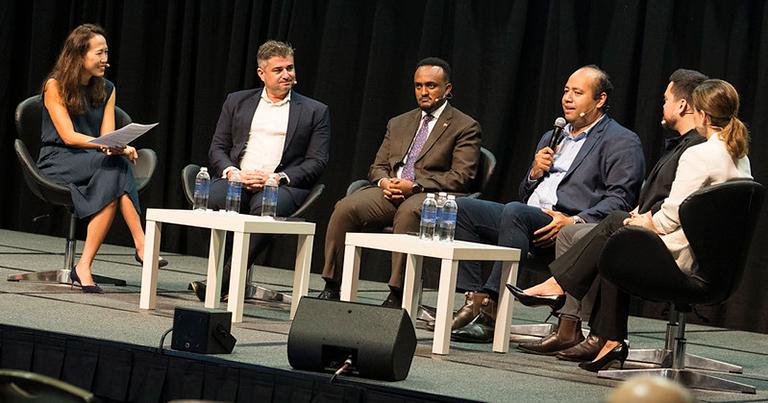
Building consistency across digital and physical touchpoints
As customer expectations evolve, consistency across channels has become a defining challenge for airlines. For Fiji Airways, the digital side hinges on integration. “Airlines are notorious for having systems upon systems,” Batiweti said. “The challenge is getting all of it to talk to each other.”
On the people side, consistency comes down to training – and Fiji Airways is significantly increasing its investment. Before the pandemic, cabin crew typically received four to five days of training per year. Today, that figure has increased to 20 to 25 days.
The goal is clear: ensure staff are equipped not only with operational knowledge, but with the service mindset, cultural grounding, and behavioural consistency required to deliver experiences that align with the brand’s values – on every flight, with every guest.
APEX FTE Asia Expo: familiar faces and fresh inspiration
Reflecting on his experience at APEX FTE Asia Expo, Batiweti emphasised the sense of community and shared purpose that defines the event.
“This is my third time coming here, and I love it,” he said. “I meet familiar faces, make great connections, and meet new partners. We all face similar challenges, and sharing what each of us is doing has been amazing. The conference sessions are so good. It’s a great showcase.”
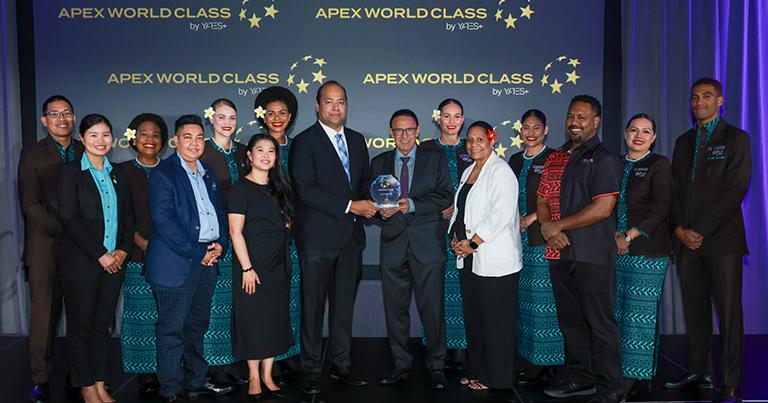
A customer experience strategy rooted in humanity
As airlines navigate the balance between automation and personalisation, Fiji Airways offers a clear and refreshing example of what a people-first digital strategy can look like. For Batiweti, technology is a means to strengthen, not dilute, the warmth and authenticity that define the airline’s brand.
By focusing on cultural differentiation, investing heavily in crew training, innovating in the post-trip space, and pursuing the deceptively powerful goal of gaining “three more minutes”, Fiji Airways is redefining what modern hospitality looks like in the sky.
View the full APEX FTE Asia Expo 2025 report >>Save the date for APEX FTE Expo Asia, 18-19 November 2026 – uniting the world in Singapore for the largest end-to-end passenger experience and innovation expo
Next year, we’re building on 15 years of incredible momentum, as our long-running regional show evolves into a true global mega event with the launch of the unified APEX FTE Expo Asia, bringing together two of the industry’s most respected brands under one roof at the Marina Bay Sands. APEX will bring its largest event, APEX Global EXPO, to Singapore, combining its unrivalled customer experience heritage with FTE’s long-established regional innovation APAC event, which will now take on a broader global focus.
This powerful new collaboration will unite the world in Singapore for the largest end-to-end passenger experience and innovation expo, connecting airline, airport, and technology leaders from across APAC and beyond to showcase the ideas, solutions, and partnerships redefining the future of travel.
With more than 3,000 participants expected, including representatives from 100+ airlines and airport operators from around the world, attendees will experience a dynamic exhibition and conference programme featuring C-suite interviews, case studies, and discussions exploring the strategies, technologies, and collaborations driving the next era of air transport innovation.
Mark your diary for APEX FTE Expo Asia, Singapore, 18-19 November 2026 >>